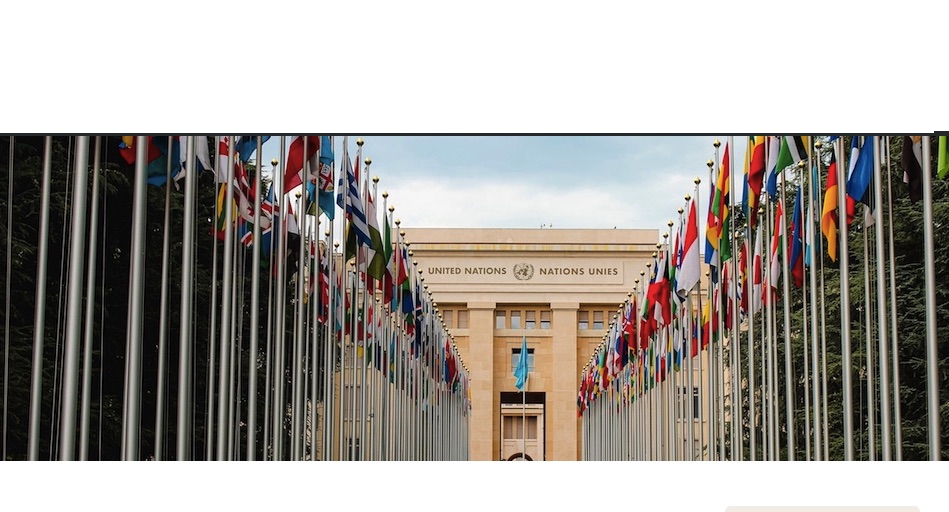. .DISARMAMENT & SECURITY. .
An article from David Swanson
I don’t have any use for PEP politicians (progressive except on the Pentagon), but there are going to be serious members of the U.S. Congress next year who aren’t afraid of flags and war songs. There are going to be a lot more than (AOC+3) four of them.

CORI BUSH
One is going to be Cori Bush from St. Louis who won her primary against a long-time incumbent. She’s recently tweeted the following:
“If you’re having a bad day, just think of all the social services we’re going to fund after we defund the Pentagon.”
“Militarization makes up 64% of our federal budget. Medicare & Health are 6%. Education is 5%. Social Security, Unemployment, and Labor together are 3%. Ignorance is thinking those priorities keep our families safe.”
“220K+ people, including 1,700 healthcare workers, have died from COVID-19 due to our government’s inability to protect its citizens & pass pandemic relief. Ignorance is Trump’s Pentagon taking $1 billion in funding designated for PPE production to make jet engine parts.”
“@BernieSanders and @EdMarkey proposed a 10% cut on the Pentagon budget to use to fund health care, housing, childcare and educational opportunities for cities and towns experiencing a poverty rate of 25% or more. Ignorance is blocking this bill knowing it would save lives.”
“Ignorance is paying Lockheed Martin more than $1 trillion over the course of a 60 year contract for a dysfunctional F-35 program. Ignorance is letting their CEO take a $20 million dollar salary while military veterans go homeless.”
“The Department of Defense has never passed an independent audit, yet we continue to give them money unchecked. Ignorance is the Trump administration *INCREASING* the Pentagon budget by more than $100 billion since he was elected.”
“Ignorance is giving weapons of war to local police departments with no accountability or oversight. Ignorance is calling us radical for saying that’s wrong.”
Cori Bush may appreciate this billboard going up in St. Louis. And I’m sure she fully appreciates that she’s up against Joe Biden on all of the above just as much as Trump. But she’s not going to be alone.
JAMAAL BOWMAN
Jamaal Bowman of New York said of his now-defeated primary competition:
“My opponent, Representative Eliot Engel, and I do not share the same foreign policy vision. He voted for one of the worst policy disasters of my lifetime — an unjust and costly 2 trillion dollar war in Iraq. He voted against President Obama’s signature foreign policy achievement which put a lid on Iran’s nuclear program. He went on CNN this past year and said he didn’t want to tie Trump’s hands when it came to strikes on Iran. He was one of only 16 House Democrats in 2016 to vote against an amendment that blocked the transfer of cluster bombs to Saudi Arabia which has been relentlessly dropping them on Yemeni civilians. My opponent accepts donations from corporations and arms manufacturers like Lockheed Martin, Northrop Grumman, and Raytheon. He supports a hawkish and costly foreign policy agenda instead of focusing on the communities in our district that have been neglected for far too long. We must dramatically reduce the Pentagon’s budget over the next ten years, end the forever wars, and rebuild a diplomacy-first approach through the State Department. We have been in Afghanistan for 19 years, in Iraq for 17 years, and in Syria for five years. Congress must reassert its authority to bring our troops home.”
Engel stood by his warmongering and sank with it. This means that a different warmonger will become the chair of the House Foreign Affairs Committee, while Engel likely heads off to make the big bucks from a yet-to-be-named weapons dealer.
MONDAIRE JONES
Mondaire Jones of New York also won his primary. His website says:
“The United States has been at war for most of my life — wars that have led to hundreds of thousands of people being killed and millions more displaced. We were led into the disastrous war in Iraq under false pretenses. The war in Afghanistan has been raging for almost 19 years. We are contributing to the world’s worst humanitarian crisis, in Yemen, by providing weapons to the Saudi-led coalition. Extreme war powers, and a reluctance by members of Congress to exert oversight, have enabled the Trump Administration to bring us dangerously close to the brink of war with Iran. . . . Enough is enough. Our national security depends on a sane approach to American foreign policy that centers diplomacy, peace, human rights, and cooperation on the challenges facing our world. We must stop fighting endless wars. As a member of Congress, I will fight to finally repeal the 2001 Authorization for Use of Military Force (AUMF), which has given the executive branch a blank check to pursue foreign wars having nothing to do with the September 11th attacks. I will work to bring an end to existing conflicts, including the war in Afghanistan, through inclusive peace processes that center human rights, including women’s rights. I will support barring the sale of weapons to human rights violators, including Saudi Arabia, and I will support redirecting funds towards conflict prevention, including through development aid to reduce poverty and inequalities and combat climate change. . . . Our budgets reflect our values and priorities. Currently, the United States has chosen to prioritize investing in war and weapons ahead of providing for the basic needs of our people. The 2020 National Defense Authorization Act (NDAA) allocates a whopping $738 billion dollars for military spending. We spend more than approximately the next seven countries combined. It is estimated that we have spent almost $6 trillion dollars on the Global War on Terror alone. The United States maintains hundreds of costly military bases in dozens of countries throughout the world. Meanwhile, the Trump administration has gutted funding for the State Department and USAID, making the United States less able to lead on diplomatic and humanitarian efforts to address our world’s biggest challenges. As a member of Congress, I will push to reduce military spending and reinvest this money in the State Department, to strengthen diplomacy and peacebuilding, as well as domestically, in programs that meet the needs of our civilian population. I will fight to prioritize investment in human security approaches, which focus on meeting the human needs of people and protecting our environment.”
Those three are going to be added to Congress anew. That’s a big improvement. A couple more might get in, the first more likely than the second.
(Article continued in right column)
Question for this article:
The peace movement in the United States, What are its strengths and weaknesses?
(Article continued from left column)
MIKE SIEGEL
Mike Siegel, who won his primary in Texas, has not a word on his website but has said this:
“Let’s rebuild the State Department and our diplomatic corps. Let’s revamp our foreign aid spending to encourage the development of civil society and local economies. And instead of over-spending on war industries, let’s invest in the domestic safety net and the conditions for peace around the world.”
QASIM RASHID
Qasim Rashid, who won his primary in hyper-militarized Virginia, says on his website:
“The United States spends twice as much on national defense as China and Russia combined. We can spend this money more wisely and find ways to cut costs. US defense spending priorities must focus on foreign threats, assemble the defense infrastructure necessary to protect Americans from these threats, and support the men and women who defend our way of life, while they’re serving and after they serve.”
“[W]e should not be running our foreign policy through the Pentagon. It’s time to invest in diplomacy, and take time during the COVID-19 pandemic to think about what national security truly means in a 21st century world.”
Then there are incumbents.
PRAMILA JAYAPAL
This co-chair from Washington State of the extremely unreliable Progressive Caucus recently said:
“This will be a top priority of the progressive caucus — to really get some meaningful budget cuts in Pentagon spending this next cycle.”
She recently tweeted:
“We must retire the days of incremental change and usher in a new age of bold, progressive transformation. That means finally cutting wasteful defense spending to make long overdue investments in health care, infrastructure, and clean energy.”
MARK POCAN
Jayapal and Pocan, of Wisconsin, recently wrote:
“Every dollar wasted at the Pentagon is a dollar not being spent on test kits, personal protective equipment or contact tracing. Every handout to Lockheed Martin or Northrop Grumman is money that could have been spent on ending this pandemic, keeping small businesses afloat and staving off an economic meltdown. We hope our colleagues will join us in voting to cut the Pentagon budget, so we can redirect funding to where it’s needed in our communities.”
KATIE PORTER
A possibly ally is Katie Porter who recently asked a Lockheed Martin executive:
“Why should the taxpayer foot the bill to help Lockheed Martin at this time?”
Then there are the five most reliably antiwar Congress Members of recent years:
ILHAN OMAR
RO KHANNA
RASHIDA TLAIB
AYANNA PRESSLEY
ALEXANDRIA OCASIO-CORTEZ
That makes a possible baker’s dozen out of 435 House Members, not counting 100 Senators. There are more:
BARBARA LEE
In July, Congresswoman Lee of Oakland and Congressman Pocan announced the formation of a Defense [sic] Spending Reduction Caucus. I have been unable to learn who is in it.
PETER DEFAZIO
EARL BLUMENAUER
Defazio and Blumenauer of Oregon have been relatively outspoken, even on their websites.
JIM MCGOVERN
Congressman McGovern of Massachusetts is a pretty reliable vote.
There are others.
This year 93 House Members voted to move 10% of military spending to human needs on a vote that was not even close and on which none of them were threatened or bribed by their party “leadership” to vote the wrong way, and with Trump available as the target of their rhetoric. Could boosting the number of members willing to speak out against militarism to over a dozen boost the number willing to vote against it on even the weakest measures to over 93, even if the White House changes?
There are numerous other candidates for Congress whom people have claimed should be added to “the squad” but unless they will talk about war and peace, they’re not getting a jersey on my squad and they’re not serious about what they claim to be serious about.
There may be others I don’t know about. Please add them in the comments under this article on davidswanson.org.
Not a single one of these members of Congress has ever proposed their ideal federal budget. The Progressive Caucus has a budget proposal that is much improved over past years in that it would move a teeny bit out of military spending, specifically $63 billion out of the off-the-books slush fund, $38 billion out of supplemental spending, and $62 billion out of the Pentagon’s budget. That’s $163 billion moved to useful things out of well over $1 trillion going to militarism.
Most Democrats and all Republicans in Congress are not listed above. The same goes for almost all “white” Congress Members. Also wildly under-represented here: men in Congress. Almost all Democrats running for Congress have zero foreign policy or budget positions on their website at all, other than their great love for veterans. In my view, what happens will depend very largely on public activism. Can we make opposing militarism mainstream, respectable, acceptable? Can we make warmongering marginal, shameful, despicable? We have to try.













 Click on image to see video.
Click on image to see video.

